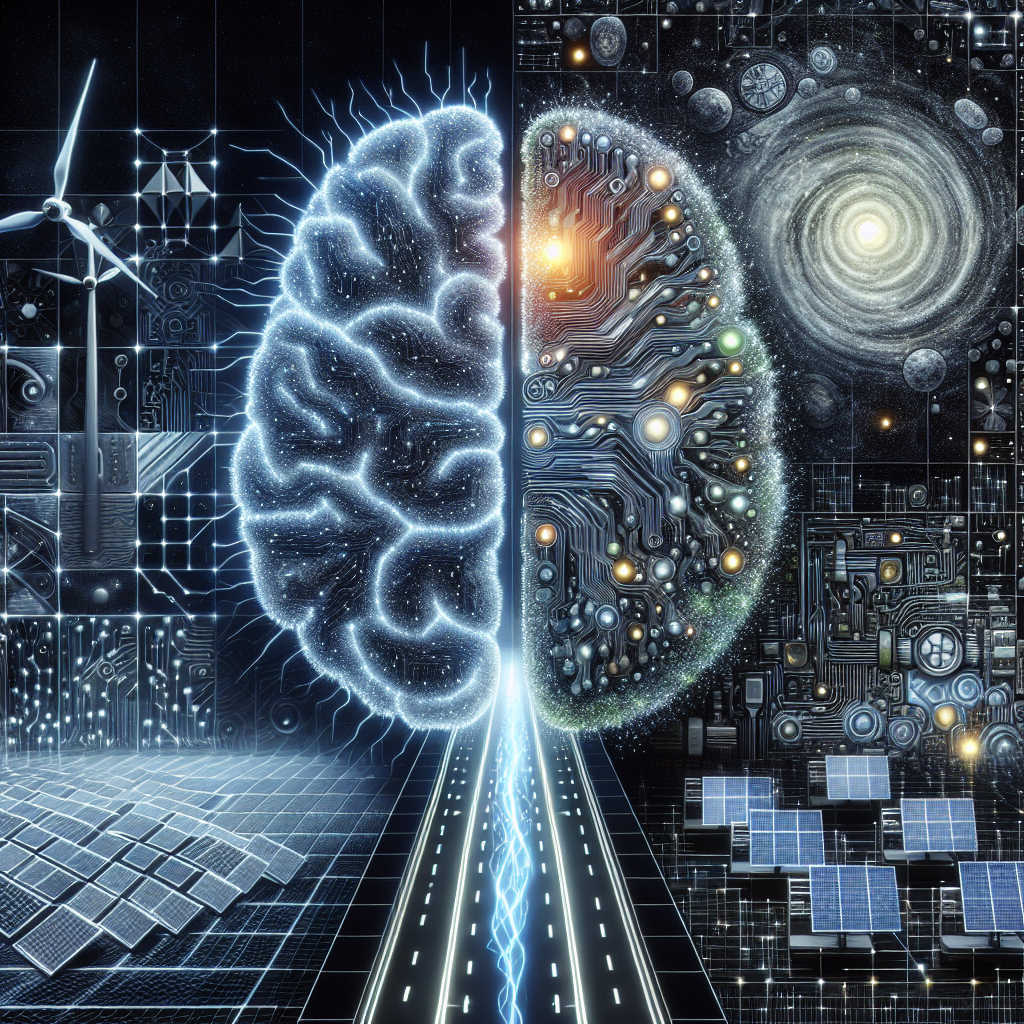The Intersection of AI and Renewable Energy Storage Technologies
In recent years, there has been a growing interest in the intersection of artificial intelligence (AI) and renewable energy storage technologies. This convergence has the potential to revolutionize the way we generate, store, and distribute energy, ultimately leading to a more sustainable and efficient energy system. In this article, we will explore how AI is being used to enhance renewable energy storage technologies, the benefits of this integration, and the challenges that need to be addressed.
How AI is Enhancing Renewable Energy Storage Technologies
One of the key advantages of AI is its ability to analyze large amounts of data and optimize complex systems in real-time. When applied to renewable energy storage technologies, AI can improve the efficiency, reliability, and overall performance of these systems. Here are some ways in which AI is being used to enhance renewable energy storage technologies:
1. Predictive Maintenance: AI algorithms can analyze data from sensors and other sources to predict when equipment is likely to fail. By identifying potential issues before they occur, AI can help prevent costly downtime and extend the lifespan of renewable energy storage systems.
2. Energy Forecasting: AI can analyze historical data, weather patterns, and other factors to accurately predict energy production and consumption. This information can be used to optimize the operation of renewable energy storage systems, ensuring that energy is produced and stored at the most efficient times.
3. Demand Response: AI can be used to optimize the management of energy storage systems in response to changes in demand. By predicting peak usage times and adjusting energy storage levels accordingly, AI can help reduce costs and improve grid stability.
4. Grid Optimization: AI can optimize the flow of energy between renewable energy storage systems and the grid, ensuring that energy is distributed efficiently and reliably. This can help reduce the need for expensive upgrades to the grid infrastructure and improve overall system performance.
Benefits of AI-Enabled Renewable Energy Storage Technologies
The integration of AI and renewable energy storage technologies offers a number of benefits, both for individual consumers and the energy system as a whole. Some of the key advantages include:
1. Increased Efficiency: By optimizing the operation of renewable energy storage systems, AI can help maximize energy production and reduce waste. This can lead to lower energy costs for consumers and a more sustainable energy system overall.
2. Improved Reliability: AI can help identify and address potential issues before they occur, reducing the risk of equipment failures and downtime. This can improve the reliability of renewable energy storage systems and ensure a consistent energy supply.
3. Enhanced Grid Stability: By optimizing the flow of energy between renewable energy storage systems and the grid, AI can help improve grid stability and reduce the risk of blackouts or other disruptions. This can benefit both consumers and energy providers.
4. Lower Costs: By optimizing energy production and storage, AI can help reduce the overall cost of renewable energy systems. This can make renewable energy more competitive with traditional fossil fuels and accelerate the transition to a more sustainable energy system.
Challenges and Considerations
While the integration of AI and renewable energy storage technologies offers many benefits, there are also challenges that need to be addressed. Some of the key considerations include:
1. Data Privacy and Security: AI algorithms rely on large amounts of data to operate effectively. Ensuring the privacy and security of this data is essential to prevent unauthorized access or misuse.
2. Regulatory Compliance: The use of AI in energy storage systems may be subject to regulatory requirements and standards. Ensuring compliance with these regulations is essential to avoid legal issues and penalties.
3. Technology Integration: Integrating AI into existing renewable energy storage systems can be complex and require significant investment. Ensuring compatibility and interoperability with existing infrastructure is essential to maximize the benefits of AI.
4. Skills and Training: Implementing AI-enabled renewable energy storage technologies requires specialized skills and training. Ensuring that employees have the necessary expertise to operate and maintain these systems is essential for success.
Frequently Asked Questions
Q: How does AI improve the efficiency of renewable energy storage systems?
A: AI can analyze data in real-time to optimize the operation of renewable energy storage systems, maximizing energy production and reducing waste.
Q: What are some of the benefits of integrating AI with renewable energy storage technologies?
A: Some of the key benefits include increased efficiency, improved reliability, enhanced grid stability, and lower costs.
Q: What are some of the challenges of using AI in renewable energy storage systems?
A: Challenges include data privacy and security, regulatory compliance, technology integration, and skills and training.
Q: How can consumers benefit from AI-enabled renewable energy storage technologies?
A: Consumers can benefit from lower energy costs, improved reliability, and a more sustainable energy system overall.
In conclusion, the intersection of AI and renewable energy storage technologies has the potential to transform the energy system and accelerate the transition to a more sustainable future. By optimizing energy production, storage, and distribution, AI can help reduce costs, improve reliability, and enhance grid stability. While there are challenges that need to be addressed, the benefits of this integration are clear. As technology continues to advance, we can expect to see even greater innovations in this exciting field.

